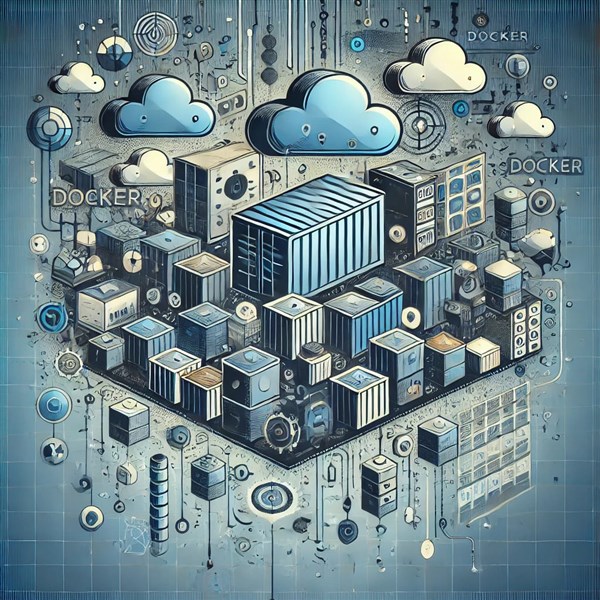Unable to find what you're searching for?
We're here to help you find it
In the fast-paced world of software development, DevOps, and cloud computing, efficiency and scalability are critical. Traditional monolithic applications and virtual machines (VMs) struggle to meet the demands of modern infrastructure, which requires automation, portability, and speed.
This is where Docker, the leading containerization technology, plays a crucial role. By enabling applications to run consistently across different environments, Docker revolutionizes software deployment, DevOps workflows, and cloud-native applications.
But why is Docker training essential for DevOps and cloud engineers? 🤔
In this blog, we’ll cover:
✅ What Docker is and why it matters in DevOps
✅ How Docker simplifies cloud computing
✅ Key skills you’ll gain from Docker training
✅ How Docker integrates with Kubernetes and CI/CD pipelines
✅ Career benefits of Docker certification
By the end, you’ll understand how Docker training can boost your career and help organizations achieve faster deployments, better resource utilization, and improved scalability. 🚀
Docker is a containerization platform that allows developers to package applications along with their dependencies into lightweight, portable containers. These containers run consistently across different environments, eliminating the "it works on my machine" problem.
Docker provides:
✔ Containerization: Encapsulating applications into isolated environments.
✔ Portability: Run applications anywhere—local, cloud, or hybrid infrastructure.
✔ Scalability: Easily scale applications with container orchestration tools like Kubernetes.
✔ Fast and Consistent Deployments – Containers ensure that applications behave identically in development, testing, and production.
✔ Infrastructure as Code (IaC) – Docker simplifies DevOps automation by defining infrastructure as code in Dockerfile and docker-compose.yml.
✔ Microservices Architecture – Docker enables service-based architectures, allowing independent scaling and updates of microservices.
🔹 Real-World Example:
Netflix, Spotify, and PayPal use Docker to deploy and manage their microservices architectures, ensuring scalability and high availability.
✔ Docker containers can run on any cloud platform (AWS, Azure, Google Cloud).
✔ Developers can build applications once and deploy them anywhere without modification.
🔹 Example:
A company using AWS may decide to migrate to Google Cloud. Docker ensures that applications run identically on both platforms without major reconfigurations.
✔ Traditional VMs require separate OS instances, consuming more resources.
✔ Docker containers share the same OS kernel, reducing overhead and improving performance.
🔹 Comparison:
🚀 VMs: Require 4GB RAM per instance.
🚀 Docker Containers: Require only 500MB RAM per container for the same workload.
✔ Docker enables applications to scale horizontally with container orchestration tools like Kubernetes and Docker Swarm.
✔ Developers can quickly spin up new containers to handle increased traffic.
🔹 Example:
E-commerce websites use Docker auto-scaling to handle traffic spikes during Black Friday sales.
✔ Learn how to create, run, and manage Docker containers using docker run, docker ps, docker stop, and docker rm.
✔ Understand image creation with Dockerfile and container registries like Docker Hub.
✔ Configure container networking to enable communication between applications.
✔ Learn how to use Docker Volumes for persistent storage.
✔ Use docker-compose.yml to define and run multi-container applications.
✔ Manage database, backend, and frontend services in a single YAML file.
✔ Implement role-based access control (RBAC) to secure Docker images.
✔ Scan for vulnerabilities using docker scan and avoid privileged containers.
✔ Integrate Docker with Jenkins, GitHub Actions, or GitLab CI/CD.
✔ Automate testing and deployments using Docker containers.
Docker containers can be automatically managed, scaled, and deployed using Kubernetes.
✔ Kubernetes Features:
🚀 Auto-scaling – Adjusts container instances based on traffic.
🚀 Load balancing – Distributes traffic efficiently across containers.
🚀 Self-healing – Automatically replaces failed containers.
🔹 Example:
A fintech company running high-traffic trading applications uses Kubernetes to ensure zero downtime and high availability.
✔ Developers use Docker to build and test code in isolated environments.
✔ CI/CD tools like Jenkins, GitHub Actions, and GitLab CI/CD automate container deployment.
🔹 Example:
A DevOps team configures a pipeline where:
1️⃣ A developer pushes code to GitHub.
2️⃣ Jenkins builds a Docker image.
3️⃣ The image is tested and deployed to AWS Kubernetes (EKS).
💰 Docker Certification Salary Trends (2024)
✔ DevOps Engineer – $110,000 - $150,000 per year
✔ Cloud Engineer – $120,000 - $160,000 per year
✔ Site Reliability Engineer (SRE) – $130,000 - $180,000 per year
🎯 Why Get Docker Certified?
✔ Industry-recognized Docker Certified Associate (DCA) validates your container expertise.
✔ Companies prefer certified professionals for cloud-native and DevOps roles.
✔ Install Docker and practice creating containers.
✔ Understand Docker images, volumes, and networking.
✔ Best Courses:
📌 Docker Mastery – Udemy
📌 Docker & Kubernetes – Coursera
🔹 Step 3: Prepare for Docker Certification (DCA)
✔ Study official Docker documentation.
✔ Take practice exams before attempting the DCA certification.
Conclusion
Docker training is essential for DevOps and cloud engineers because it:
✔ Streamlines software deployment with containerization.
✔ Enhances cloud computing through portability and scalability.
✔ Enables automation in CI/CD pipelines and Kubernetes environments.
✔ Boosts career opportunities in DevOps, cloud engineering, and SRE roles.
For IT professionals aiming to future-proof their careers, learning Docker is a must-have skill.
In conclusion, Docker has become a must-have skill for DevOps and Cloud Engineers. To stay ahead of the curve, professionals must invest in Docker training. With Koenig Solutions, you get access to top-notch Docker training that will help you excel in your career. Visit our website at Koenig Solutions to learn more.
💡 Ready to master Docker? Start your training today and become a DevOps expert! 🚀

Aarav Goel has top education industry knowledge with 4 years of experience. Being a passionate blogger also does blogging on the technology niche.










